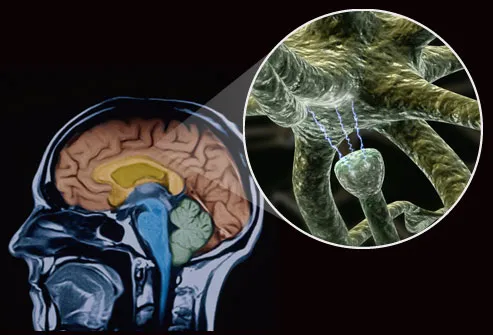The author finds that he gets the most relaxation from the things he once feared the most.
Mood music
A strange thing happened to me on the way to recovery: I started finding peace and relaxation in the very things that used to fill me with fear and spark anxiety attacks. [See Fear Factor]
It used to be that relaxing meant holing myself up in the bedroom watching endless episodes of Star Trek. I watched a lot of the news, too, which instead of relaxing me would send my brain into an endless spin of worry about things happening at the far corners of the world.
Lying on the couch all weekend — sleeping for a lot of it — was relaxation.
Then Sunday night would arrive and I’d go into a deep depression about the tasks that awaited me the next day at work.
Writing — the very thing I earned a living from (and still do) — filled me with dread. Oh, I loved being a journalist even back then, but I was always in fear of not getting a story perfect. I would sit on a story for hours; writing, re-writing, polishing and reading it aloud multiple times to make sure it “sounded” perfect.
It drove my co-workers nuts. [See The Crazy-Ass Guy in the Newsroom]
If I had to make a business trip, the heart would pound. I’d obsess about the travel itself and whether I would actually make it there alive. Conferences filled me with dread. What if I didn’t manage to cover every piece of news coming from the event?
Oh, and when writing, it had to be absolutely silent around me. Noise would interrupt the gears in my mind — except for the sound of my voice when reading my articles aloud.
I would go crazy about getting the kids to bed by 7:30 so I could lie comatose in front of the TV. If my wife wanted to talk instead, rage would build inside, though I would try not to show it. I sucked at hiding it, though, and in my own passive-aggressive way, she knew she wasn’t getting through. And yet she stuck around anyway. (See: The Freak and the Redhead: A Love Story]
I’m not sure when things changed. But here’s what relaxation and peace mean to me now:
–Family time. Of course, I’ve always craved being with my wife and children more than anything else. But it used to be that I wanted us all sitting around the house doing nothing. Now I love experiencing things together. Trips with Erin to Campobello Island off New Brunswick, Canada, the mountains of New Hampshire or Newport, R.I. for the Newport Folk Festival. Trips with kids in tow to Battleship Cove, Old Sturbridge Village, The N.E. Aquarium, The Museum of Science. I always cherished my time with them. Now I cherish it more. A lot more.
— Writing. For the life of me, I can’t figure out the reason for this, but writing is relaxing now. Other than when I’m with my wife and kids, writing is when I’m happiest. And I no longer re-read my stuff over and over again. I decided that’s what editors are for. Sure, I’m an editor. But every editor needs an editor. And no, I don’t read ’em back to myself anymore.
–Writing WITH music. In another bizarre twist, I went from needing quiet while writing to needing music. The louder the better. Henry Rollins. Motley Crue. Metallica. Thin Lizzy. Cheap Trick. All perfect writing music.
–Travel. Instead of fearing travel, I now relish it, though I don’t like being away from my family for too long. I start to miss them the second I hit the road. They’re on my mind the whole time I’m away. But I love to go places, see things, experience cities outside my own comfortable Bostonian walls. Last year alone, I visited Chicago twice, Washington DC twice, and went to San Francisco, Nevada, Arizona and New York.
One of the DC trips was in an RV with a group of IT security guys. That was the trip back from the Shmoocon security conference. It’s a 12-hour ride and it’s cramped. But I get to hang out with some of the smartest people in my industry.
Thursday, I leave on the RV for the trip down to DC for Shmoocon 2010. I’ll do a lot of writing for work this weekend. But I’m going to have a blast doing it. I’ll get impatient to be home by Sunday afternoon. I’ll miss my family. But I’ll be a better journalist for making the trip.
Wherever I go, I always try to carve out time to see things, especially items of historical significance. Especially in DC.
I’m determined to take the family to DC this year. There are logistics and financial realities to work out, but it’s going to happen.
I don’t spend much time wondering how I came to enjoy what I once feared. I know the answers.
Erin and the boys teach me something every day about living, whether it’s Erin showing me courage by quitting a steady job to try and make her own business work or Duncan, the youngest son, convincing his older, more skittish brother to go with him on a camping trip with the grandparents because “It’ll be fun, Seaney!” That was a couple years ago. Since then, Sean, who has overcome a lot of fears himself and made his Dad proud, relishes those trips as much as Duncan does.
But above all — and the family examples are a huge part of this — I think the transformation came with my conversion to the Catholic Faith. My bringing God into my life, everything has changed for the better. That includes my concept of rest.
To me, rest is not about lying down and shutting off. It’s about living to the best of your ability. When that living gets scary, I put my trust in God. And that makes everything come together.
Make no mistake: I still have a lot of work to do on these things. But I’m glad to be making the journey.
As Henry Rollins once sang:
No such thing as free time. No such thing as downtime. There’s only lifetime. It’s time to shine.






